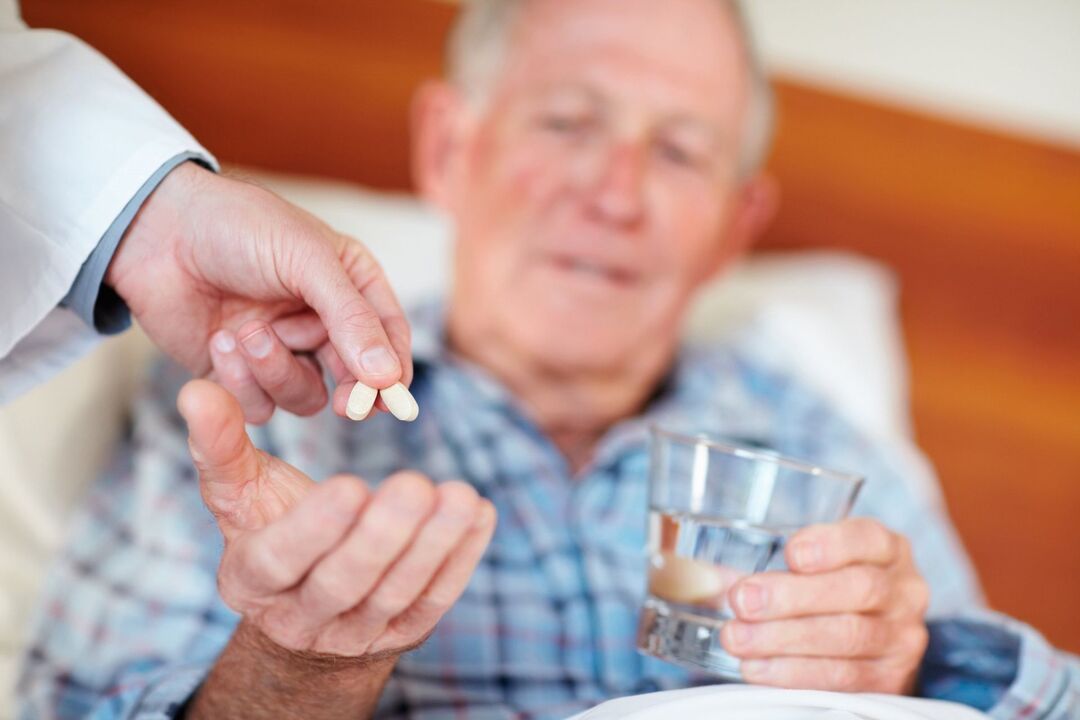
Prostate cancer and prostatitis are two diseases that cause real anxiety in men. These "male" conditions are not exactly the same, although in both cases the prostate gland is affected and you must take medicine for prostatitis and prostatitis, usingadd more treatment methods and indicate surgery when there are complications. However, speaking of adenomas, they mean a benign tumor, while prostatitis is an inflammatory process that occurs in the prostate gland.
Both diseases are mainly diagnosed in men aged 45 or 50, while many men mistakenly believe that adenomas are a complication of prostatitis. This misconception is often based on the similarity of symptoms - both conditions are accompanied by difficulty urinating and pain. Treatment has both some basic similarities and differences.
Principles of disease treatment
Review of the main stages of prostate cancer and prostatitis therapy. In either case, the treatment should be more comprehensive. Acute prostatitis in men can be cured with the help of antibiotic therapy using drugs of diverse action, anti-inflammatory drugs, and desensitization. If an abscess is suspected, the initiation of a purulent inflammatory process is prescribed.
Drug therapy is designed to stabilize the patient's condition by lowering the temperature, stopping the inflammation, and returning the general condition to normal. The doctor confirms the need to remove the abscess by rectal and instrumental examination, and laboratory tests. After the autopsy, a drainage tube is placed in the hospital to drain the pus. After the prostate is released from pus, the inflammatory processes stop, the fluid drains out, after which the wound heals within about a week.
Chronic prostatitis in men requires a longer duration of treatment than usual lifestyle and dietary changes. The main goal of therapy is to remove the blockage. To do this, use:

- Take an antimicrobial, which will take two to eight weeks.
- Means improved blood circulation.
- Prescribe non-steroidal anti-inflammatory drugs.
- Apply physiotherapeutic methods - magnetic field treatment and laser treatment. The use of ultrasound, acupressure and hirudotherapy is also recommended.
- Gland massage.
Modern treatments guarantee the establishment of a sufficiently stable remission, the duration of which can last for years, and, with successful circumstantial coincidence, complete healing.
When prostate cancer is detected at an early stage, the most effective treatment is medication. Similar to prostatitis therapy in men, physical therapy, diet are indicated, and lifestyle modifications are recommended. The purpose of taking the drug is to slow the growth and decrease the volume of the gland, to reduce the severity of the violations of urination that they use:
- Antibacterial agent.
- The drug regulates hormonal metabolism, allowing you to make the gland smaller.
- To stabilize the process of urination, drugs are recommended to improve the tone of the prostate and urethra.
- Botanical capsules, difficulties in working arise due to the fact that their action is not fully understood.
- Photodynamic therapy is prescribed.
- Ozone therapy, exercise therapy
In either case, it is permissible to use folk recipes as an additional remedy after consulting the attending physician. Medications for prostatitis and adenomas will work most effectively in the context of the victim's denial of addiction.
The use of antibiotics in the formation of prostatitis and adenoma
Consider what medications you need for prostatitis and prostate cancer, and start with antibacterial agents. Antibiotics for prostate tumors are used only when a bacterial infection is causing the disease, which is considered fairly common. Antibiotics for prostatitis are one of the mainstays of therapy. In either case, the following may be specified:
- Penicillin group drugs. They come in the form of tablets, injections, and oral suspensions.
- Substances belonging to the tetracycline group.
- Cephalosporins. Medicines needed for prostatitis. They are prescribed when inflammation is provoked by gram-positive or gram-negative bacteria, anaerobic pathogens. Substances should be administered parenterally.
- Fluoroquinolones. They are prescribed in the presence of pathogenic ureaplasma, chlamydia, gardnerella, staphylococcal or streptococcal bacteria, Escherichia coli or mycoplasma.
- Macrolide group. The advantage of funds is low toxicity, moreover, they have the ability to accumulate in the prostate gland. The drug is produced in the form of tablets or solution.
- Aminoglycosides. This is a great option if no inflammatory trigger is identified or there are several of them.
Antibiotic treatment for these diseases can eliminate many negative symptoms, but it comes with side effects. In large part, this is a disruption of the digestive system and the formation of a biological disorder.
Treatment with inhibitors and blockers
Among the remedies for prostatitis and prostate tumors, αfirstblockers and -adrenergic inhibitors. The first substances have a relaxing effect on the muscle tissue of the prostate, as a result of which it is possible to quickly eliminate muscle spasms, which normalize the disordered process of urination in 85%. Furthermore, such drugs can lead to a drastic drop in blood pressure, which should be borne in mind when prescribing.
For prostate tumors, medications include 5-alpha reductase inhibitors. These funds are used most often, as they effectively prevent the development of pathology, help to reduce the size of the prostate gland and contribute to the normalization of urinary processes. Inhibitors are a very effective remedy, because after one course, over 50% of patients do not need surgical intervention. The effect is even greater when the combined treatments are used, moreover, the results obtained are much more stable than with the single treatment.
Preparations for the relief of pain and inflammation in the prostate gland
Therapy for the pathologies under consideration involves the elimination of pain and the elimination of inflammatory processes. Pain is especially severe during an exacerbation of the disease; Antispasmodics help ease the pain. They help relax the smooth muscles of the prostate gland and help improve blood circulation.
The inflammatory process in the prostate gland is characteristic of prostatitis. If you ignore treatment, they progress, accompanied by pain, impaired erectile function, urinary retention against the background of compressed ducts. Often, when recommending a treatment for prostatitis, doctors prescribe medication to reduce inflammation, which in many cases can eliminate negative symptoms.
It is also possible that an inexpensive and effective drug for prostatitis, a non-steroidal anti-inflammatory antipyretic, can also be used. Any medication should be taken strictly as prescribed by a doctor and under the direct supervision of a doctor.
Herbal preparations used in the treatment of
Medicines for the treatment of adenomas, which have a noticeable positive effect - herbal remedies, the most prominent of which are extracts of the Permikson palm tree.
Can be used:
- A drug that has a positive effect on the metabolism of the system, is also a tonic for the body. It contains sandalwood, sage, ginseng, ginger, cloves, cactus and other ingredients.
- A drug is a dietary supplement and contains more than 40 ingredients, most of which are herbal.
- The drug is used as an antiseptic, analgesic and immunomodulator with antipyretic and anti-inflammatory properties. The product contains burdock root, elm and ash bark, juniper berries and bear tree leaves.
This is not a complete overview of medications that may be used to treat prostatitis and prostate tumors. However, they should be prescribed by a doctor, which will avoid unpleasant and dangerous consequences.


























